If you want to have a finished product, at some point you have to say “enough.”
ADELE LOGAN ALEXANDERRelated Topics
Anand Thakur



If you want to have a finished product, at some point you have to say “enough.”
ADELE LOGAN ALEXANDER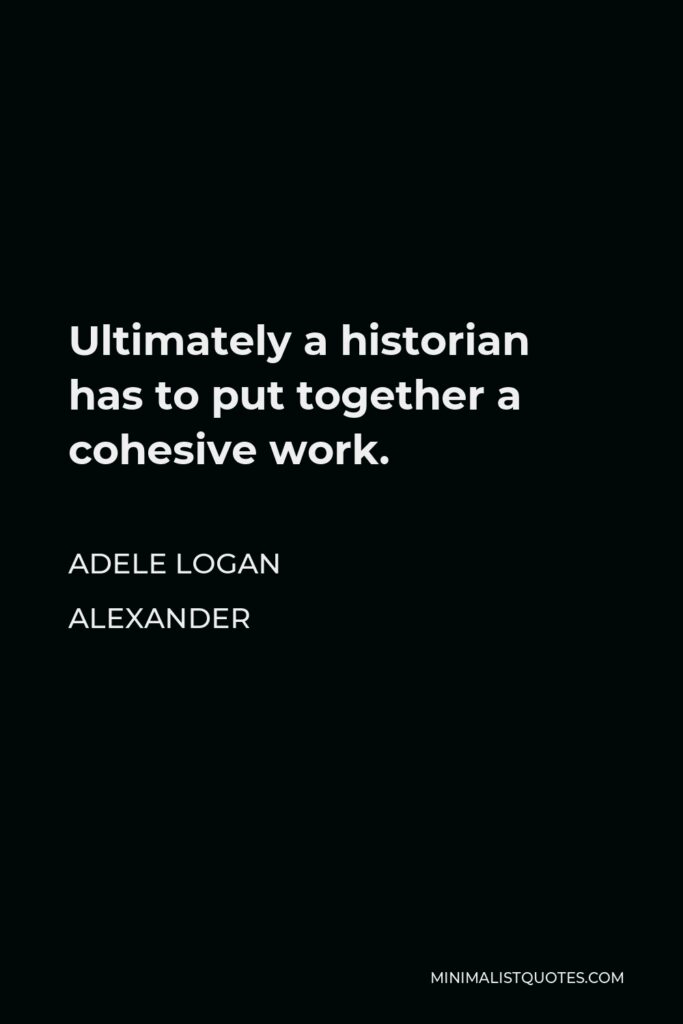

Ultimately a historian has to put together a cohesive work.
ADELE LOGAN ALEXANDER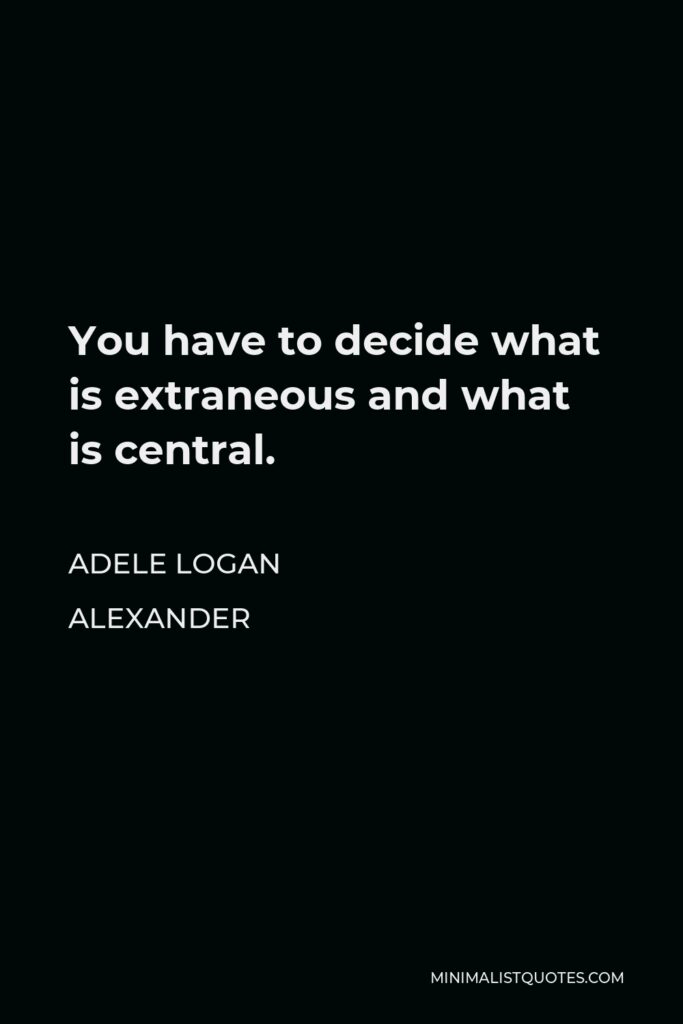

You have to decide what is extraneous and what is central.
ADELE LOGAN ALEXANDER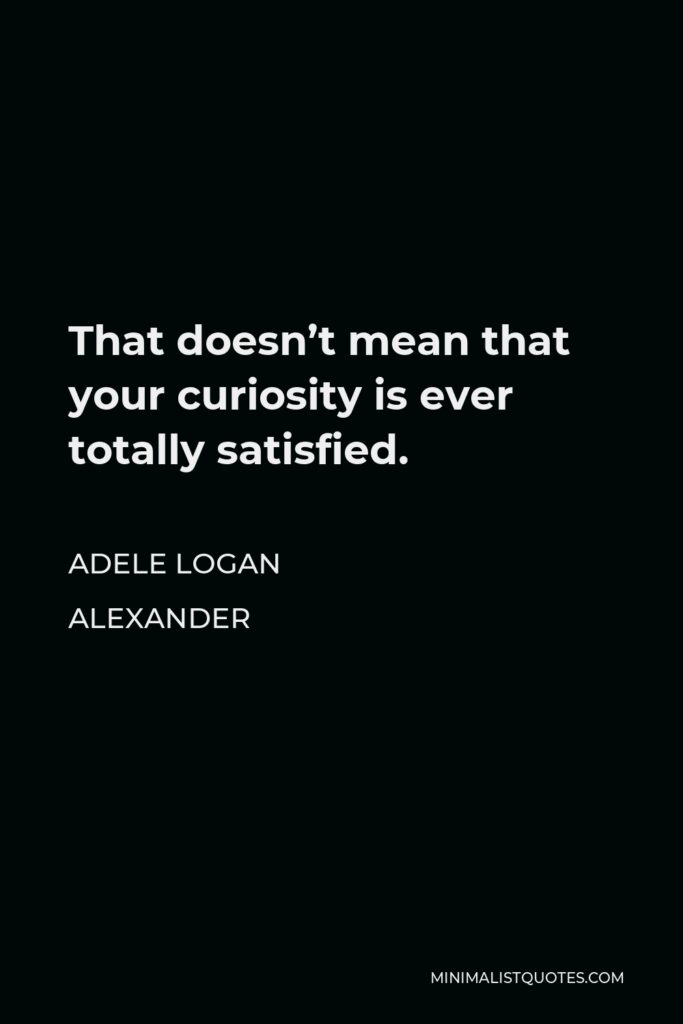

That doesn’t mean that your curiosity is ever totally satisfied.
ADELE LOGAN ALEXANDER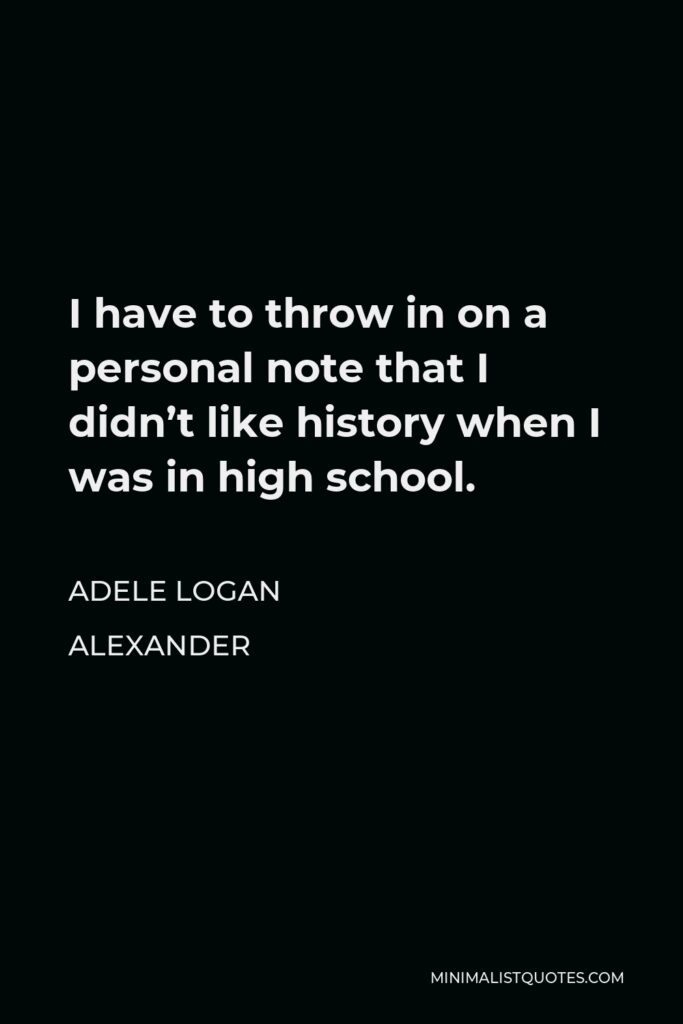

I have to throw in on a personal note that I didn’t like history when I was in high school.
ADELE LOGAN ALEXANDER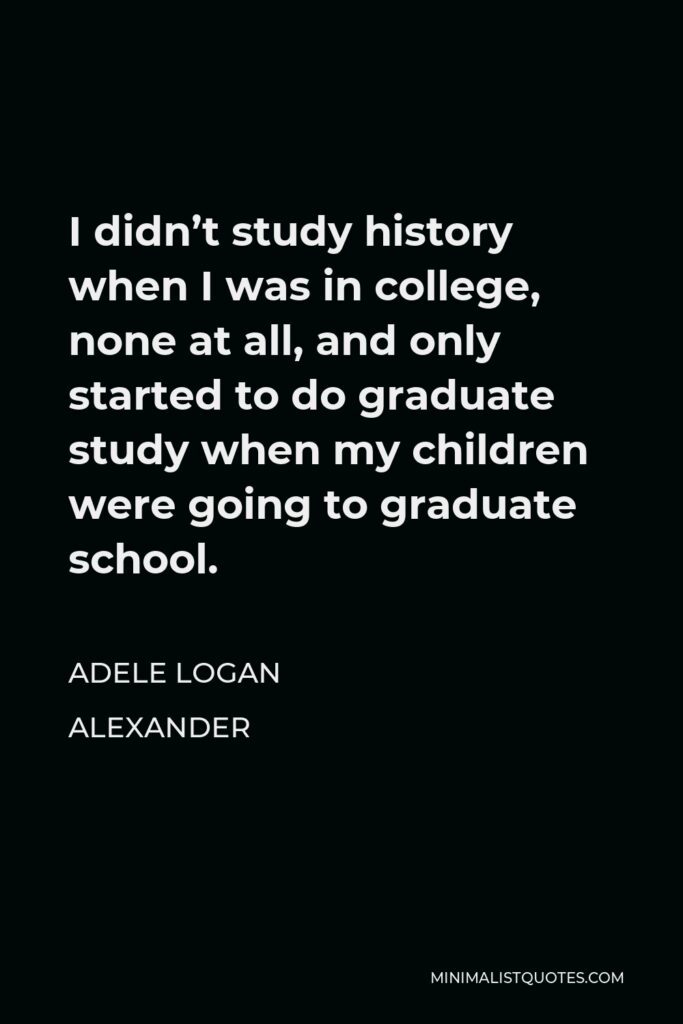

I didn’t study history when I was in college, none at all, and only started to do graduate study when my children were going to graduate school.
ADELE LOGAN ALEXANDER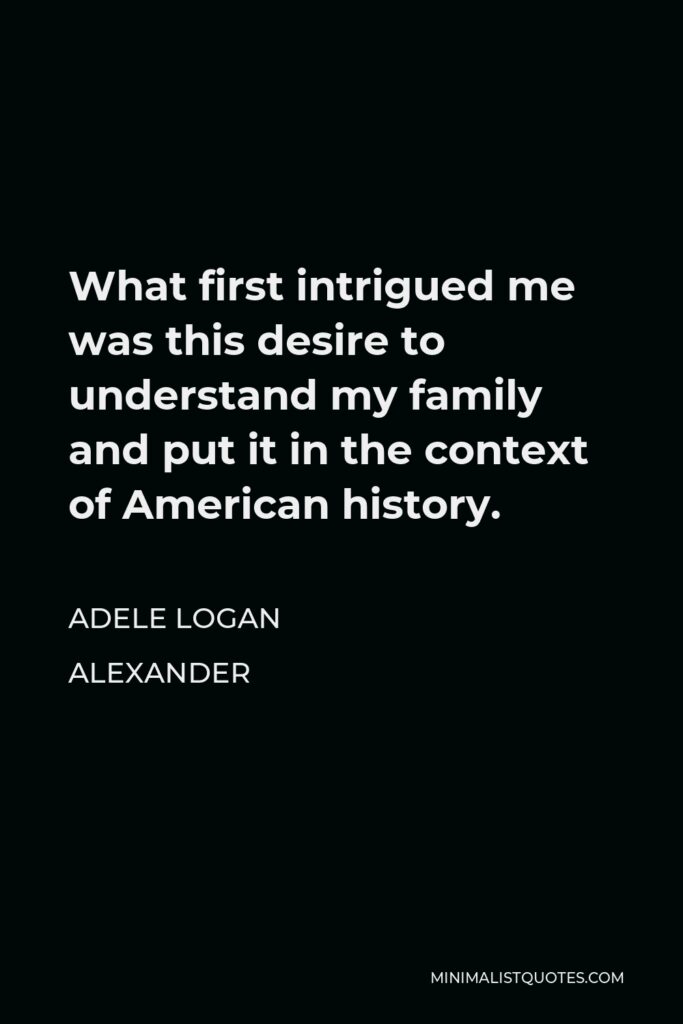

What first intrigued me was this desire to understand my family and put it in the context of American history.
ADELE LOGAN ALEXANDER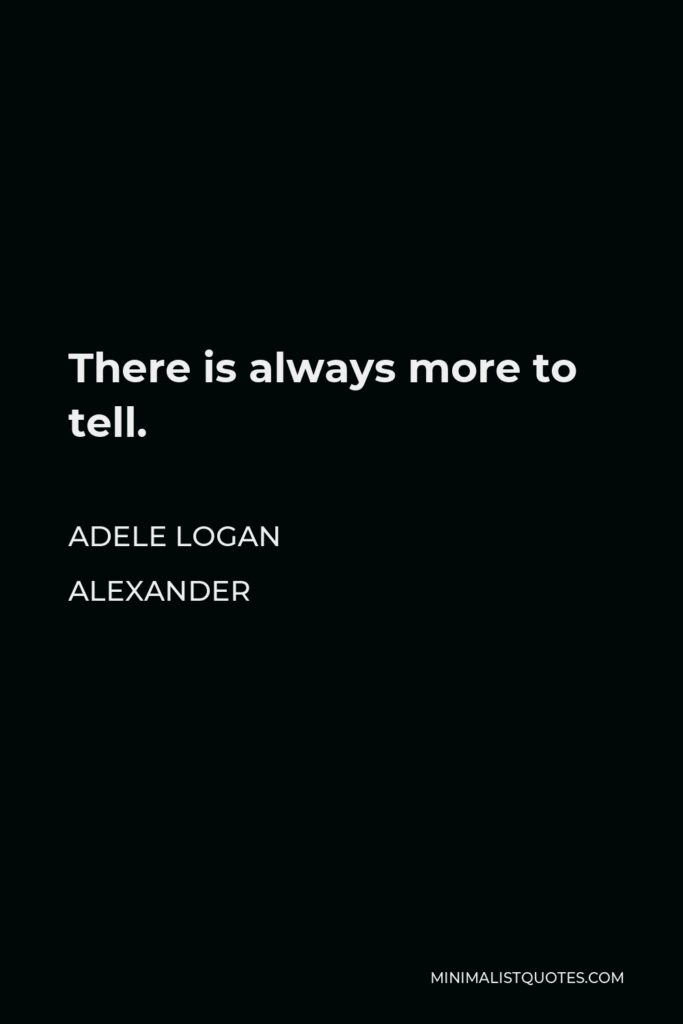

There is always more to tell.
ADELE LOGAN ALEXANDER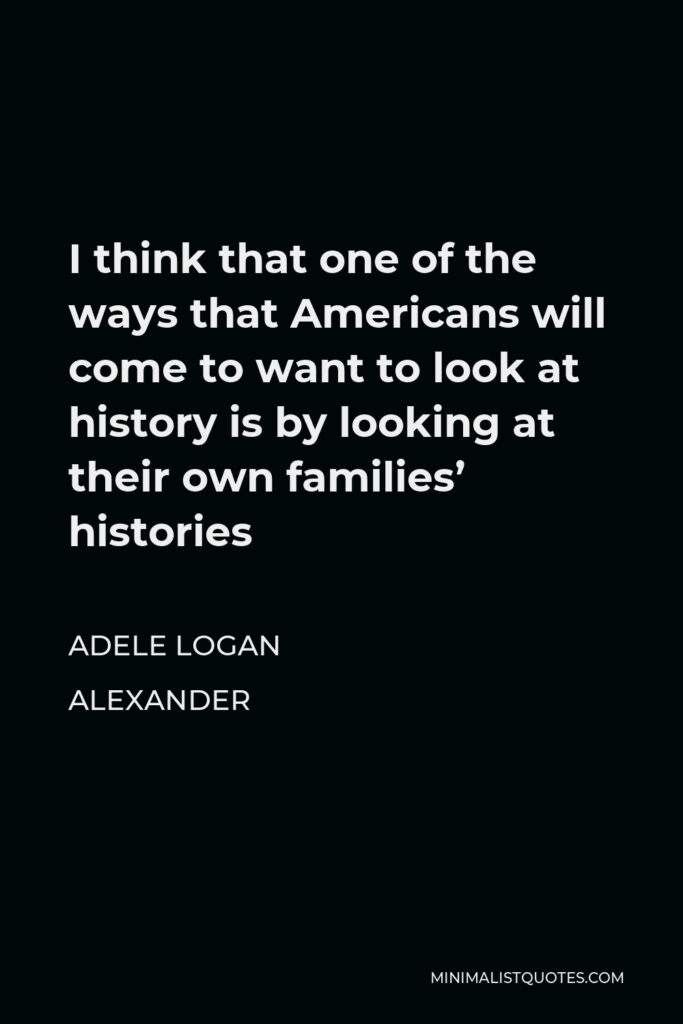

I think that one of the ways that Americans will come to want to look at history is by looking at their own families’ histories
ADELE LOGAN ALEXANDER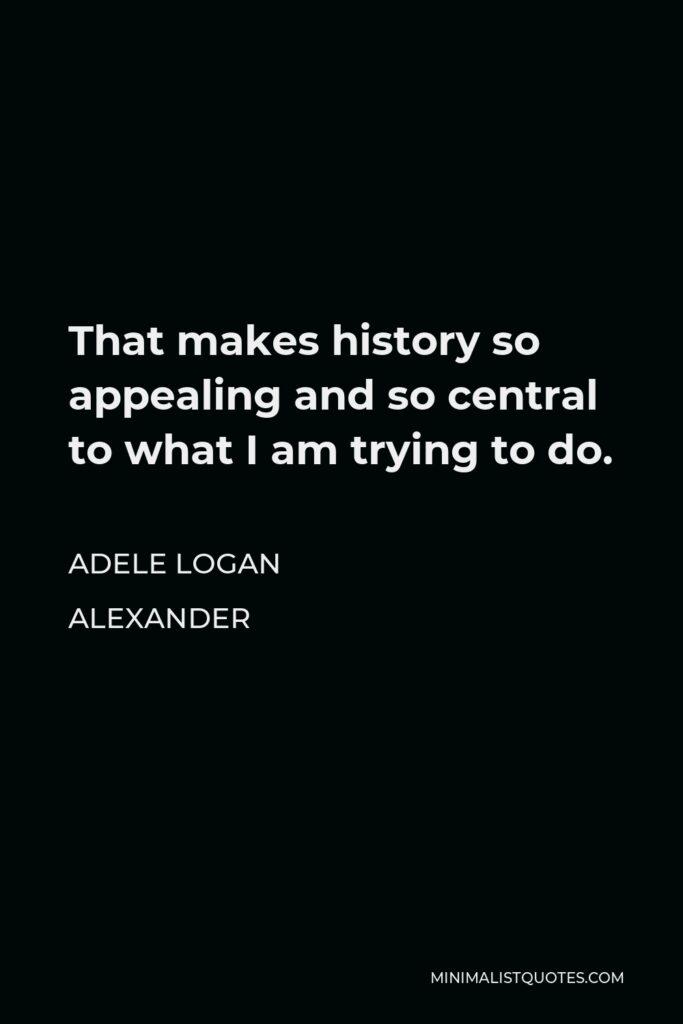

That makes history so appealing and so central to what I am trying to do.
ADELE LOGAN ALEXANDER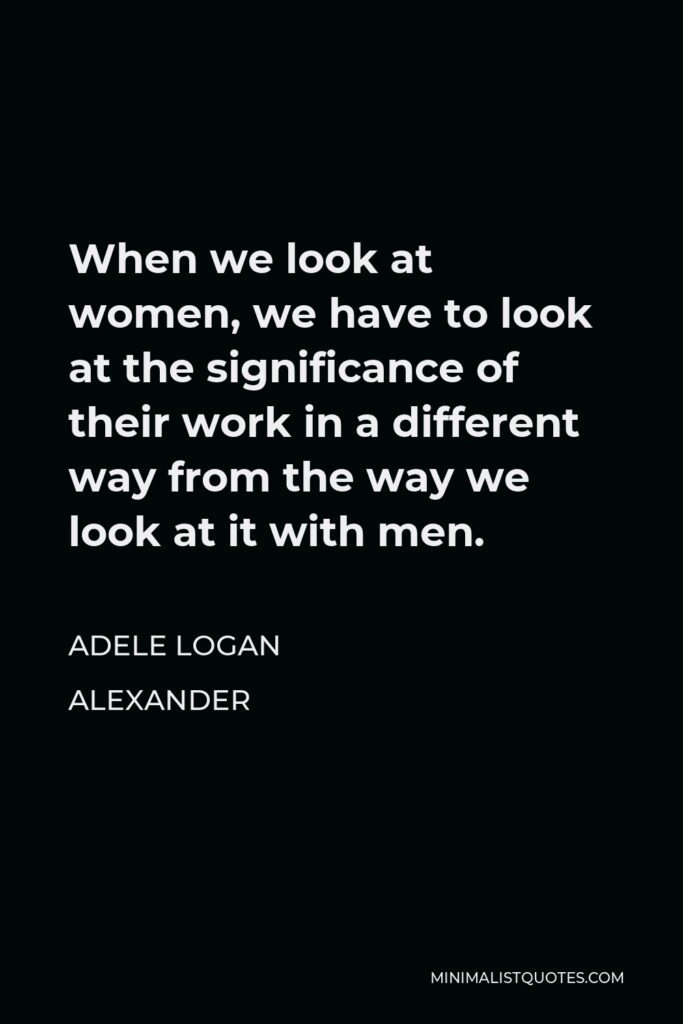

When we look at women, we have to look at the significance of their work in a different way from the way we look at it with men.
ADELE LOGAN ALEXANDER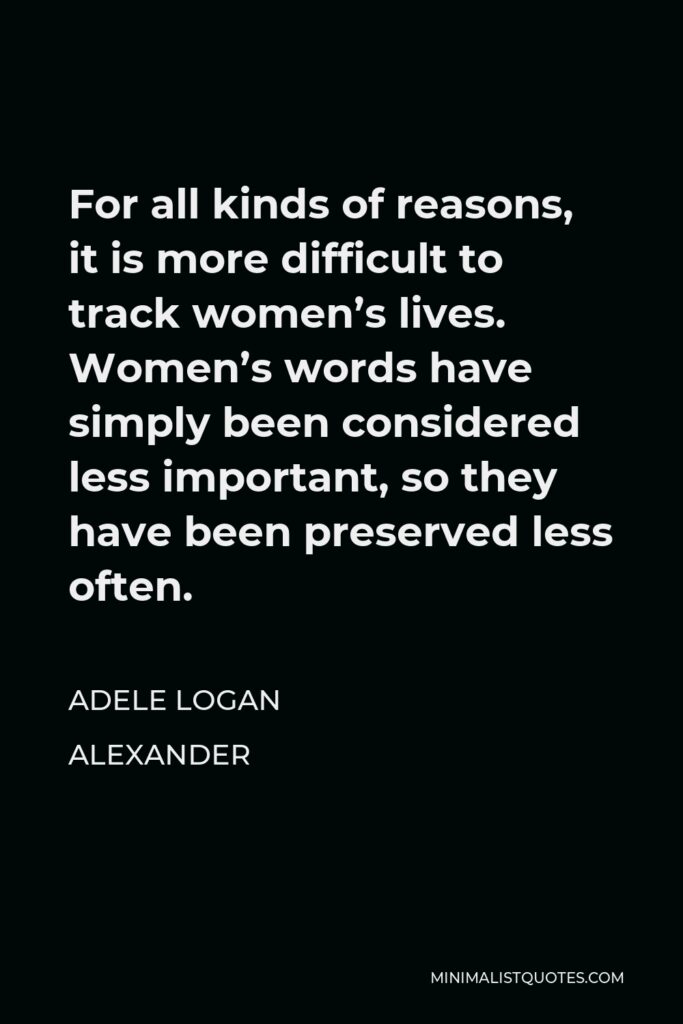

For all kinds of reasons, it is more difficult to track women’s lives. Women’s words have simply been considered less important, so they have been preserved less often.
ADELE LOGAN ALEXANDER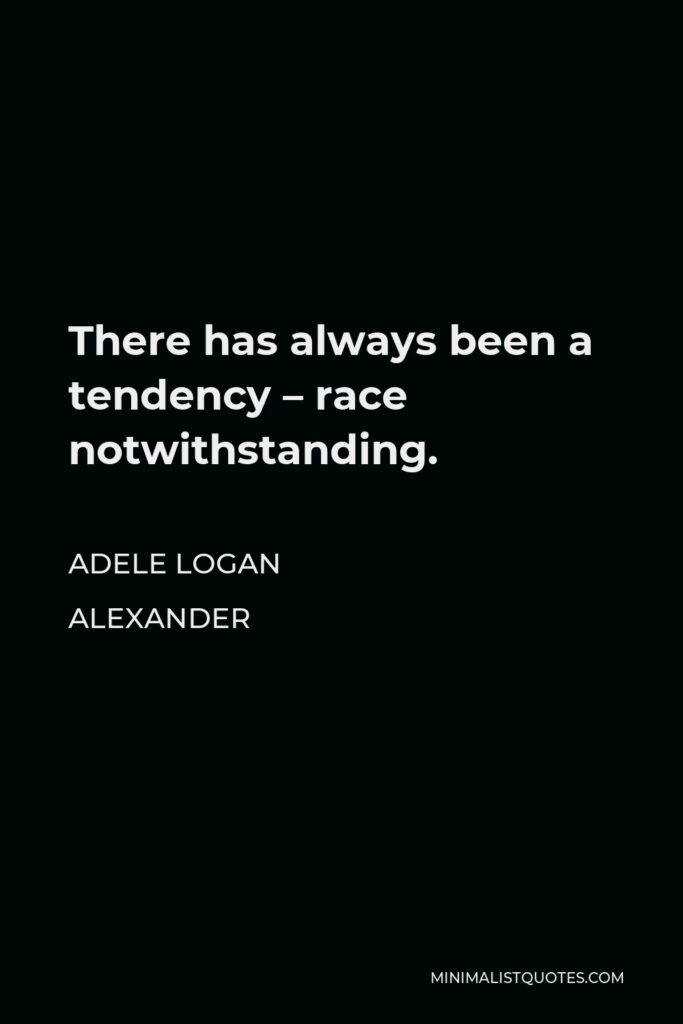

There has always been a tendency – race notwithstanding.
ADELE LOGAN ALEXANDER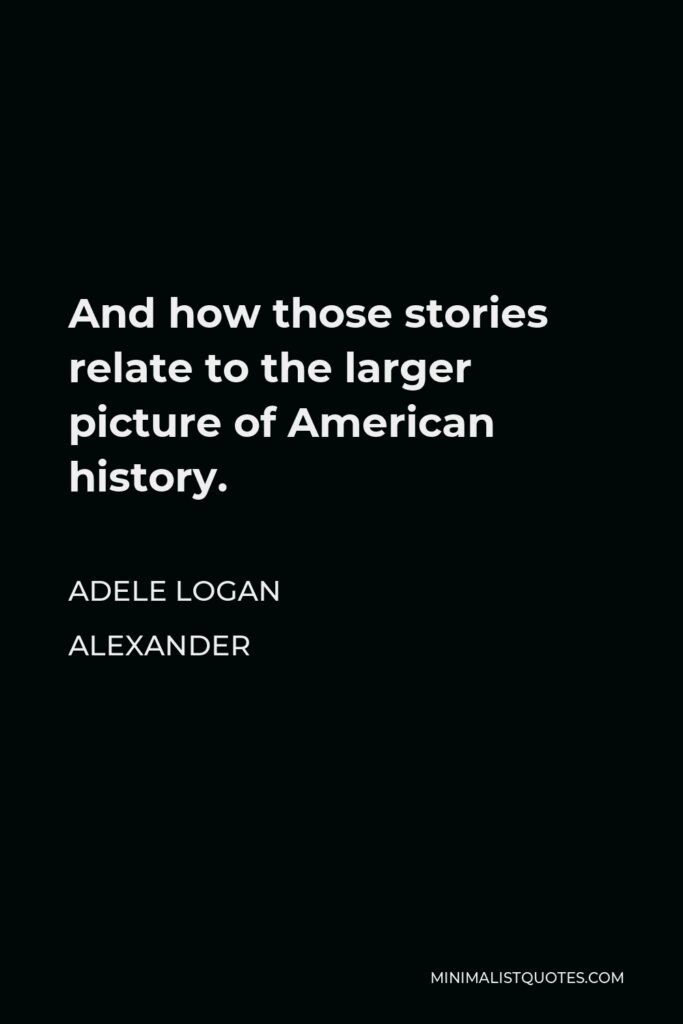

And how those stories relate to the larger picture of American history.
ADELE LOGAN ALEXANDER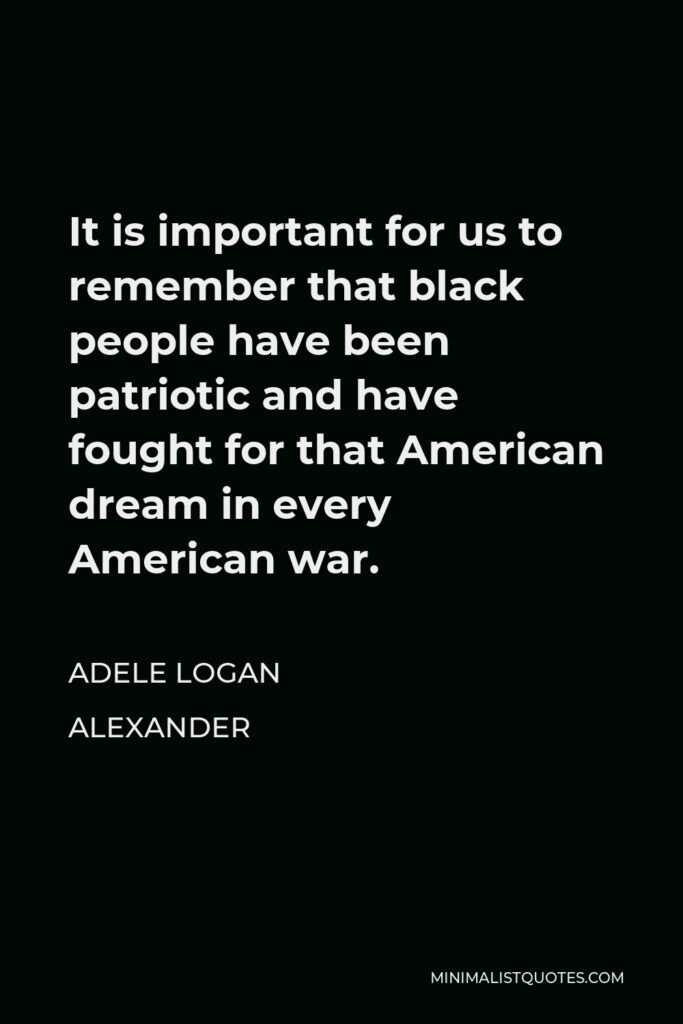

It is important for us to remember that black people have been patriotic and have fought for that American dream in every American war.
ADELE LOGAN ALEXANDER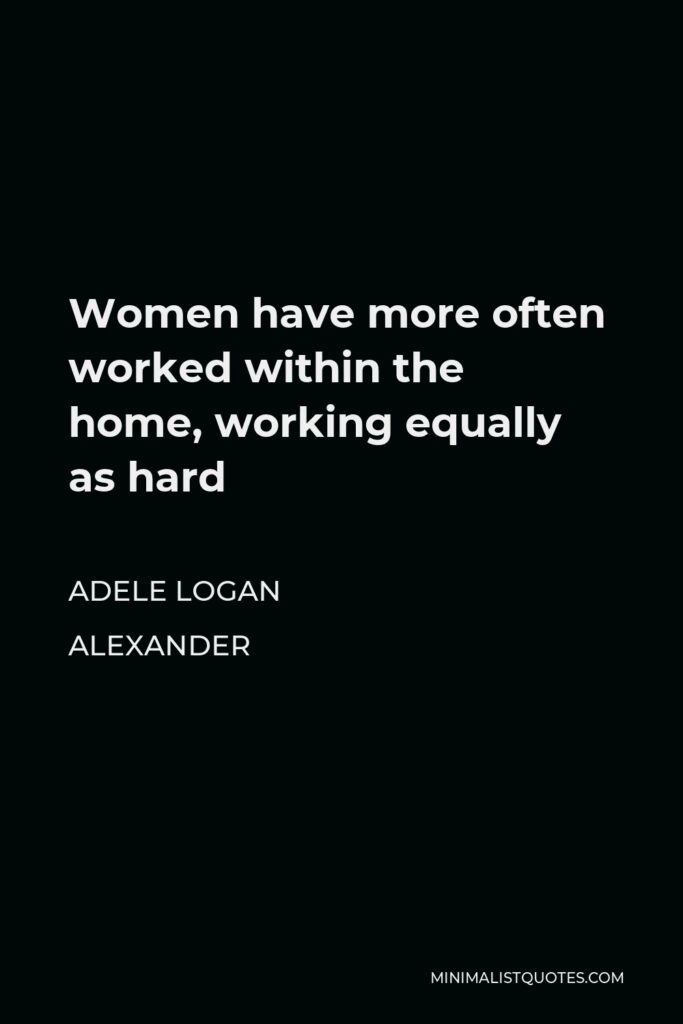

Women have more often worked within the home, working equally as hard
ADELE LOGAN ALEXANDER